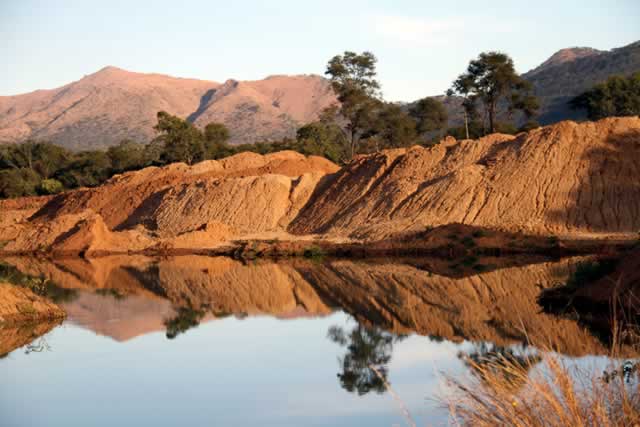
The Sunday Mail

 The effect of the ban is that little alluvial mining will take place in Zimbabwe because many gold reserves are within 200m of rivers
The effect of the ban is that little alluvial mining will take place in Zimbabwe because many gold reserves are within 200m of riversA few weeks ago, Government banned alluvial gold mining within 200m of river banks through enforcement of Statutory Instrument 92 of 2014.
This was to address concerns that alluvial mining causes siltation of rivers and contamination of water bodies.
While it is a fact that alluvial gold mining can cause water pollution, the effect of this ban is that little alluvial mining will take place in Zimbabwe because many gold reserves are within 200m of rivers.
With Government relying heavily on gold production to increase revenue, it is important to scrutinise the ban and question whether it serves the country’s best interests.
Alluvial mining is common in Australia, Canada and Ghana, which are amongst leading global gold producers.
However, these countries give special attention to rehabilitation of water bodies near alluvial mining sites.
A University of Zimbabwe geological expert last week told The Sunday Mail Extra: “The Government should have rather put strict monitoring systems in place to reduce pollution. In other countries such as Australia and Canada, they actually mine for gold in the river.”
Thousands of small-scale miners make a living from alluvial mining.
Several syndicates created in line with Government’s drive to regularise the operations of small-scale miners focus on alluvial mining and have been encouraged to sell to Fidelity Refiners and Printers, the State gold buyer.
The syndicates, employing thousands of people, have been left in the lurch after they started operations in compliance with an earlier directive to not dig within 30m of rivers.
President of the Zimbabwe Artisanal and Small-Scale Miners Council Mr Wellington Takavarasha said the ban would hit artisanal miners hard.
“Most deposits of alluvial gold are found less than 200m from the rivers so the move will negatively affect the miners. Most of them had set up syndicates that were being run professionally and abiding by the environmental regulations. So what it means is that operations are going to collapse and most of them will be left without employment,” he said.
DTZ-OZGEO — the biggest alluvial gold miner in Zimbabwe — said the new measures could see the company shut down, leaving its 500 workers unemployed.
The company is a joint venture between Russian investors and the Development Trust of Zimbabwe, and was awarded a Special Grant to mine alluvial gold in 1999. Director Mr Ishmail Shillaev said DTZ-OZGEO produced about 300kg of gold last year and had set a 2014 target of 500kg.
“The ban is not good for anyone. Because there is no mining taking place, gold panners are now coming to mine in our areas and they are damaging the environment by polluting Mutare River. It is now in a worse state because the gold panners are invading the area and making the river dirty. When we were mining, we used to make sure that the river was not polluted,” he said.
Other experts said Government should have enforced sustainable environmental protection instead of instituting the 200m ban.
Kite Mining operations manager Mr Aaron Mubaiwa said: “I think Government should review the ban and tighten the monitoring systems to control the pollution that they are worried about.
“Another factor is that there is no capital available for small-scale miners to mine reef, which is more capital intensive, so they end up mining alluvial. If they persist with the ban, Government should source for funds to finance small-scale miners.” Environmental Management Agency acting spokesperson Mr Rambwayi Mapako said the 200m ban would protect water bodies.
“The thrust that we took was to protect the environment and everything else comes second. We have a duty to protect our river sources so that water continues to play its part in the ecological process,” he said.
Government has projected gold production to reach 15 tonnes by the end of the year.
Last week, the Chamber of Mines said gold production fell by 8 percent in the first five months of 2014 compared to the same period last year.



